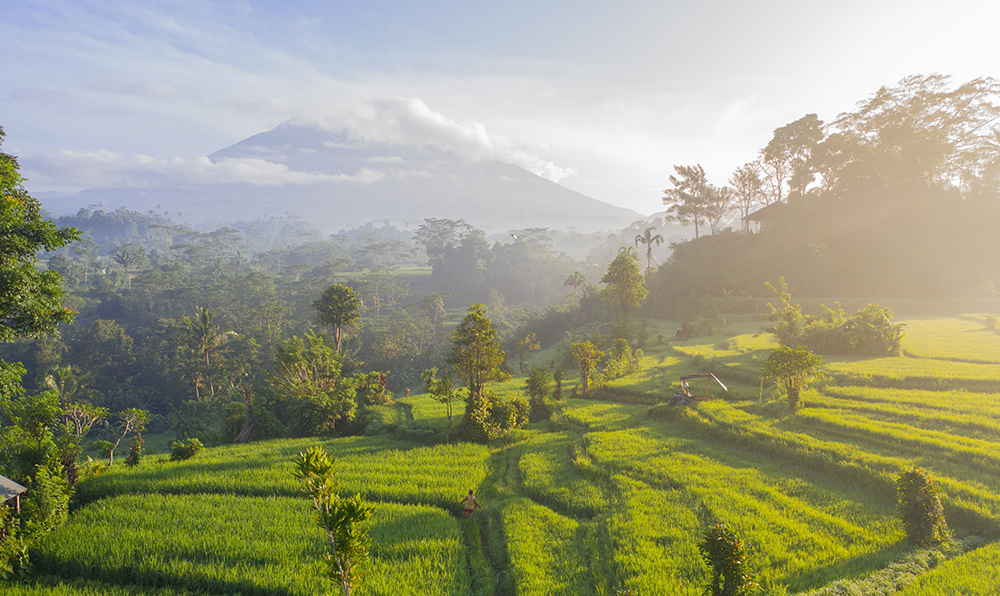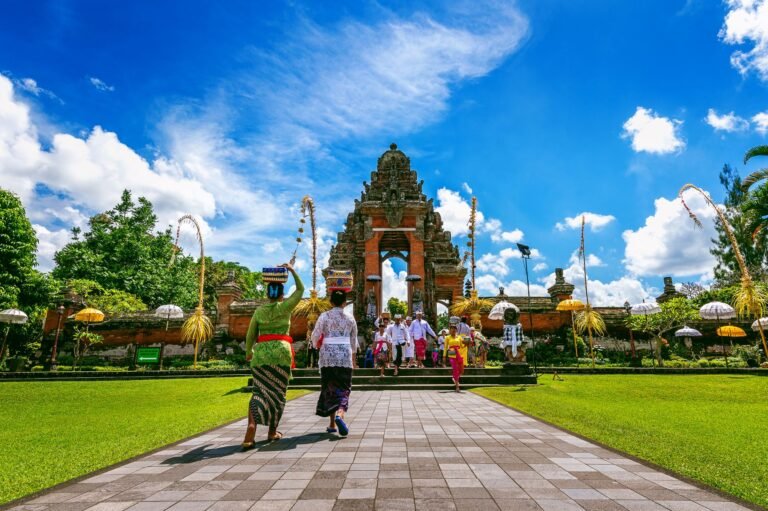
There have been a lot of recent claims that property transactions in Bali have slowed down after 15 years of unprecedented growth. Is this true? And if it is, why? What’s happened? Let’s have a look at some of the issues in the Bali real estate market.
Issue One: Property Prices in the Bali Real Estate Market
There has been tremendous growth in land and property prices in all parts of Bali but now we’re seeing for the first time that certain areas are experiencing a slow-down. This isn’t rocket science to the savvy investor, especially if we consider that business ventures have to make financial sense of their investment. And it doesn’t in areas like Seminyak and Sunset where land has reached the dizzying heights of 3 billion Rupiah per are. This hefty price tag combined with things like height restrictions to whatever can be built is pushing interest to other, cheaper parts of the island such as Canggu further west, Ubud to the north and all along the east coast because of the more attractive ROIs.
Issue Two: Is There An Oversupply?
In general yes. But this is something that any market will experience at this stage of its development. Two-three years ago Australia’s Gold Coast took a nosedive due to oversupply and prices went down by a whopping 50%. Now, however, everyone is talking about next year’s potential price boom because all developers held back and demand did not decrease. In fact, the opposite happened because of an ever-growing appetite from foreign markets. This I believe will also happen in Bali and in the meantime the smart domestic bulk purchasers are running around picking up whatever they can.
Issue Three: Infrastructure, Energy and Water
This is a sensitive subject. In general the infrastructure appears to be improving and the new government is addressing issues with speed and a lot of money. For some people it is a matter of too little – too late, but these are the sorts of people who will try to find holes in any initiative, just because they’re wired that way. It doesn’t mean their negative opinions are right. The truth of the matter is that infrastructure projects are being given priority all over the country, particularly in Bali and we can expect to see more projects in the very near future.
The central government is trying to focus all provinces towards alternative energy especially in the areas of solar, hydro and geo-thermal, resulting in many projects lining up for the immediate future. Solar energy seems to be the flavour of the month and the Balinese provincial government is trying to get legislation approved to have solar panels on every government owned building.
Water is a big challenge for Bali and the next drive needs to be on enforcing hotels and housing projects to recirculate and reuse water. If this isn’t addressed very soon it will peak and ultimately have a negative impact on the island. The political will, or lack thereof, has been the main stumbling block on this issue but now that is changing and positive steps are being made.
Issue Four: Bali Real Estate Overbuilding
In Bali there are many areas already massively overbuilt. The biggest single factor influencing this is connected with the issue of zoning, or more accurately where there has been no zoning enforced. This began to change from 2009-2013 and today it is much clearer where and what these zones are. This is being supported by stricter policies centered on the issuance of licenses and permits and what can or can’t be done in specific areas, including regulations on the size/amount of land needed to build mini hotels. Interestingly more and more developers now understand the need for green developments and see ’empty’ spaces as valuable assets.
Issue Five: Ownership Structures for Expats
This year there has been a lot of talk around this topic, and in particular towards something called a nominee structure. This has been, and always will be, illegal under Indonesian law and is in fact set as such in the Indonesian constitution. Adjustments on other structures such as Hak Pakai and HGB are well under way as is ownership for expats, no matter what self-appointed specialists from other industries may say. These other structures can freely sell at similar values to freehold and interestingly, to set either of these two ownership structures up is actually cheaper than using the nominee structure and the so-called lawyers who have been instrumental in creating the myth. Many people however, are reluctant to change from the illegal nominee structure, perhaps because they are worried about being exposed or fined, or worse, but we strongly advise that if you are one of these people you make the change to a legal structure sooner rather than later as it will not be any easier to change as time goes by.
Issue Six: Domestic Politics
This year’s elections and the usual tug of war between powers took a long time. Indonesia was also affected by a general world wide economic slow down and a currency war between the US and China. However, since its recent reshuffle, Indonesia has really gotten up to speed, revoking 2,700 regulations, which were hindering investments, and it has issued 6 economic stimuli packages amongst other initiatives designed to encourage investment. We see this as a very positive step in the right direction as Indonesia tries to normalize itself and continue to fight corruption through better law enforcement than it ever did in the past.
The new Minister of Tourism has been given a budget, which is 10 times the size of previous years. This is being used across a number of platforms to a number of strategic areas including China and the Middle East and the results are already having a positive impact.
What has changed however, is the Bali real estate market. It is now much better informed and is slightly more conservative than it used to be. Prices and ROIs are also more conservative, regulations are easier to understand and red-tape is fast disappearing, all of which attracts a larger market. So, the answer to the question ‘What’s wrong with real estate in Bali?” is … nothing!
Nothing is wrong with real estate in Bali. The bottom line is that Indonesia is one of the richest countries in the world when it comes to natural resources with one of the largest productive populations on earth being led by a democratic and proactive government. It receives the second highest amount of foreign investments in the world after China and its debt exposure compared to the National Budget is on the same level as Norway.
There is no better place to invest right now than the Bali real estate market and domestic investors are jumping at the opportunities to absorb cheaper assets. Their mind set is simple: Grow tourism and fill the hotels and resorts. All the underlying indicators are solid and positive. They don’t want to lose out, the question is, do you?
If you’d like to learn more about owning property in Bali and Indonesia get in touch with us today through [email protected]

















